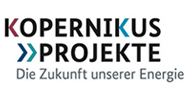29.01.2025 P2X
P2X Ringvorlesung: „Microreactors and organic electrosynthesis“
digital
29.01.2025 17:30 - 19:00 Uhr
Dr. Peter Holtappels vom Karlsruher Institut für Technologie (KIT) referiert im Rahmen der P2X Ringvorlesung über Mikroreaktoren und organische Elektrosynthese.
Die P2X-Ringvorlesung besteht aus zehn Veranstaltungen, die sich um Power-to-X-Technologien und deren Bedeutung für die Energiewende drehen. Die Veranstaltungen werden von der Provadis-Hochschule organisiert und bieten tiefgehende Einblicke in die Forschung der Kopernikus-Projekte. Zielgruppe sind Lernende in Schulen, (Fach-)Hochschulen und Universitäten sowie alle Interessierten. Vorwissen ist hilfreich, jedoch keine Voraussetzung. Die Immatrikulation an einer Hochschule ist ebenfalls keine Voraussetzung. Die Unterrichtssprache ist Englisch.
Abstract der Vorlesung
Der folgende Text wurde von den Vortragenden bereitgestellt und ist in englischer Sprache verfasst, da die gesamte Ringvorlesung auf Englisch abgehalten wird.
Power-to-X technologies to high value chemicals and fuels often comprise two steps, hydrogen production by electrolysis and the subsequent catalytic conversion of hydrogen with carbon dioxide or carbon monoxide to fuels such as kerosene or methane. These catalytic processes have been development up to large scale and a challenge remains to match the scale of the electroyser technology, which -to date- is still several orders of magnitude smaller than established Sabatier and Fischer-Tropsch processes. Microreactor technology using micro structured reactors are matching nicely the electrolyser technology in scale and modularity. The lecture will introduce the microreactor technology and their potential to be coupled to electrolysis. The principles of the microreactors, it’s characteristics and development from laboratory into demo plants will be explained in brief.
Electrical energy has in the past been used to directly synthesize more complex chemicals such as organic compounds. This so called organic electrosynthesis goes back to the 19th century and was explored among others by the renowned scientist Faraday to proof his Fraday number, which correlates electrical current (charge) and chemical reaction rates (conversion). Since then numerous organic redox reactions have been explores and some made it into large scale production such as nylon fibres. Using electrons as reactants is becoming attractive again, not only to utilize “green” electricity in chemical processes, but also to avoid other more harmful substances in the reactions. Developments of proton conducting membranes and electrodes concepts from fuel and electrolyser cells further allow the construction of more efficient electrochemical cells. The second part of the lecture will outline the general concepts for organic electrosynthesis and introduce examples for industrial processes.
Eine Übersicht über sämtliche Ringvorlesungen findet sich hier


